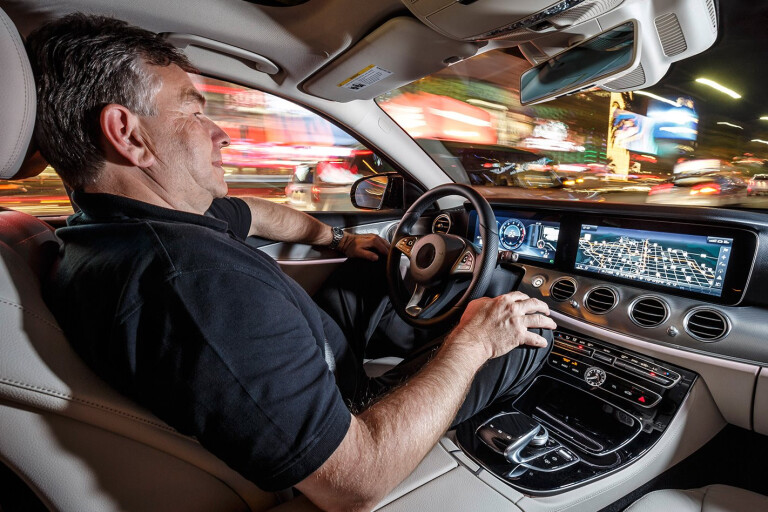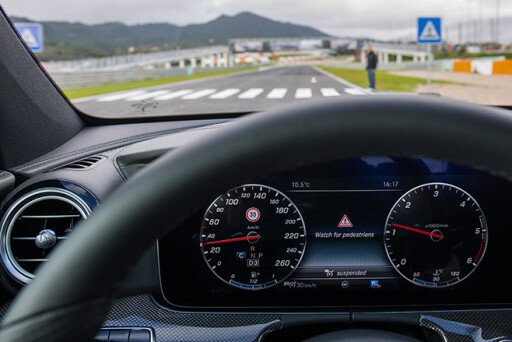
Driverless Mercedes-Benz vehicles will be programmed to prioritise their passenger rather than a pedestrian if faced with the dilemma of being able to save only one or the other in an accident.
Mercedes is believed to be the first car manufacturer to confirm its approach to the growing moral debate about autonomous vehicles after an executive told a UK car magazine that systems should choose the person it is more guaranteed to protect.
“If you know you can save at least one person, at least save that one. Save the one in the car,” Christoph von Hugo, Mercedes’ manager of driver assistance systems, active safety and ratings, told AutoExpress at the recent Paris motor show.
“If all you know for sure is that one thing, one death, can be prevented then that’s your first priority. You could sacrifice the car, but then the people you’ve saved, you don’t know what happens to them after that in situations that are often very complex, so you save the ones you know you can save.”
Mercedes’ position should make it popular with potential buyers of autonomous vehicles (AVs), based on recent research into the social dilemma of autonomous vehicles.
 Surveys published by Science magazine in June revealed that while 76 percent of respondents agreed driverless cars should sacrifice their occupants rather than crashing into a crowd of people, they were less inclined to buy such a car for themselves.
Surveys published by Science magazine in June revealed that while 76 percent of respondents agreed driverless cars should sacrifice their occupants rather than crashing into a crowd of people, they were less inclined to buy such a car for themselves.
The majority were also opposed to government regulations that would require AVs to be programmed to favour pedestrians in the event of an accident.
Von Hugo, however, added that he believed situations will be rare where an autonomous vehicle is forced to make such a life-or-death decision.
“We believe this ethical question won’t be as relevant as people believe today. It will occur much less often,” he said. “This moral question of who to save: 99 percent of our engineering work is to prevent these situations from happening at all.
“We are working so our cars don’t drive into situations where that could happen and drive away from potential situations where those decisions have to be made at all.”
Mercedes-Benz is among several car makers continuing development of fully autonomous vehicles, as well as internet giant Google. Along with Tesla, Mercedes currently offers a semi-autonomous driving mode that will steer the car automatically for a limited period of time.
Swedish car maker Volvo is also currently conducting AV trials in South Australia after the state introduced legislation allowing the use of driverless cars on its roads.



COMMENTS